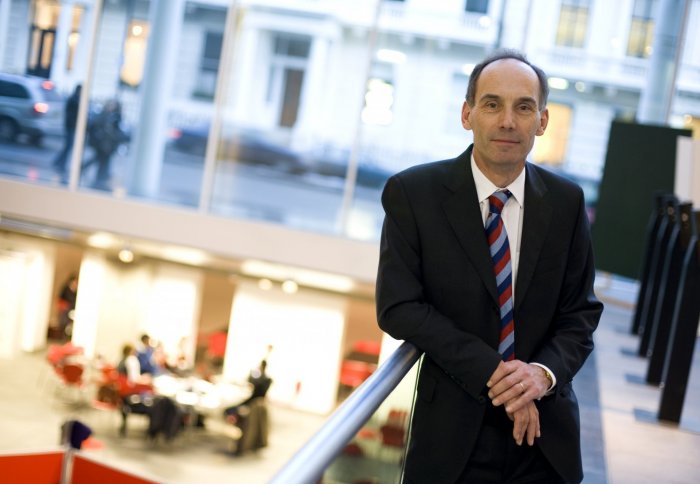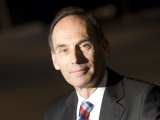Interview with outgoing Enterprise Pro Rector Edward Astle

Edward Astle is moving on after nearly five years at the College, having helped forge many commercial partnerships to support the academic mission.
How did your career lead you to Imperial?
In a sense, it didn’t. I had a relatively conventional corporate career on the boards of three FTSE 100 companies, running ever bigger divisions. The truth is I actually set out to find another, even bigger corporate job and, in the process of looking, had a phone call about another completely different sort of role here at Imperial. Initially, I came out of curiosity but soon became fascinated by the place and the challenge of applying what I had learned in business in the very different context of a university.
How does the College environment differ from the corporate world?
 One fundamental difference is the objectives – there is a narrow objective in the corporate world, which is basically shareholder return. By contrast, in the university sector there is a broader set of objectives, in terms of excellence in research, education and translation, and also, a more diverse set of stakeholders. The very founding charter of the College was about excellent science and its application to industry, so in that sense there is a readiness to do business with business here, and I think the College’s relationship with industry is a crucial pillar of the translation aspect of the College’s mission.
One fundamental difference is the objectives – there is a narrow objective in the corporate world, which is basically shareholder return. By contrast, in the university sector there is a broader set of objectives, in terms of excellence in research, education and translation, and also, a more diverse set of stakeholders. The very founding charter of the College was about excellent science and its application to industry, so in that sense there is a readiness to do business with business here, and I think the College’s relationship with industry is a crucial pillar of the translation aspect of the College’s mission.
What are your highlights or proudest achievements at the College?
In terms of the achievements of the Enterprise Division, I think it is for the academic community to judge if we are adding value, although I think the feedback has been that we are. Overall, I am probably proudest of the excellent team we have in place.
From a personal point of view, being involved in the short, intense period of getting to a contract to establish the new Lee Kong Chian School of Medicine in Singapore is perhaps the single most interesting thing I’ve done. It was also the most difficult because of the breadth of things we had to achieve and the fact that there wasn’t a model for it. With 54 students about to start in October, it is very satisfying to have played a small part in such a bold and successful endeavour by the College and the Faculty of Medicine.
What do you plan to do now and what will you miss most about Imperial?
It has always been my plan when I move on to revert to a fairly conventional non-executive portfolio career with FTSE companies, but I hope that I will also be able to keep a foothold somewhere at the university-business interface. Walking is my biggest single passion and I will have more time to do that locally in the Lake District. My wife and I have a big trip planned to New Zealand next year, and I am also hoping to get back to the Himalayas at least once more, having already been three times previously!
I will miss all sorts of things about the College – just being surrounded by the amazing science that goes on here, the opportunities to learn, and some of the lectures and the guests that the College hosts, to name but a few. I will of course miss my colleagues and my team, but I’ve had a very good run here so I shouldn’t be greedy!
Article text (excluding photos or graphics) © Imperial College London.
Photos and graphics subject to third party copyright used with permission or © Imperial College London.
Reporter
Anthony Wilkinson
Office of the Provost